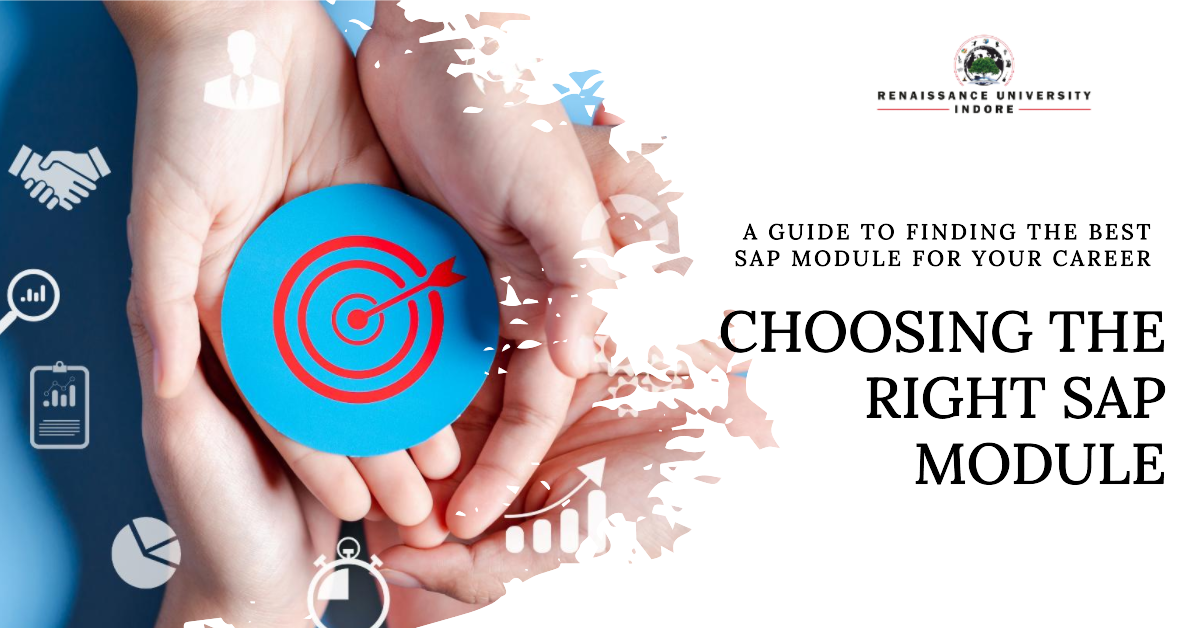Completing a Bachelor of Commerce (B.Com) degree is a significant milestone in your academic journey, but it’s also a crucial crossroads where you must decide your next steps. As we venture into 2023, the world of careers and opportunities is evolving at a rapid pace. The job market is transforming, presenting new horizons and challenges for B.Com graduates.
Choosing the right career path after B.Com course is not only a pivotal decision but also a dynamic one that requires staying up-to-date with the latest trends and options. This blog aims to be your guiding light in this journey, providing insights into the best career options available in 2023 and helping you make an informed choice.
In this article, we will delve into both traditional and emerging career paths, explore the value of professional certifications, discuss the advantages of postgraduate studies, and shed light on the importance of soft skills, networking, and internships. By the time you finish reading, you’ll be better equipped to embark on your post-B.Com career journey with confidence.
So, let’s embark on this exploration of the best career options after B.Com in 2023-24 and discover what lies ahead for you in the ever-evolving professional landscape.
Traditional Career Paths for BCom Graduates
BCom graduates have long been sought-after for their strong foundation in commerce and finance. Here are some of the traditional career paths that BCom degree holders often pursue:
1. Chartered Accountancy (CA):
- Role: Becoming a Chartered Accountant (CA) is a prestigious career choice. CAs are responsible for auditing financial statements, providing financial advice, and ensuring compliance with tax laws.
- Path: After BCom, aspiring CAs typically enroll in the CA program, which includes passing a series of exams and completing articleship training under a practicing CA.
2. Company Secretary (CS):
- Role: Company Secretaries play a crucial role in corporate governance and compliance. They ensure that a company follows legal and regulatory requirements.
- Path: To become a CS, BCom graduates need to complete the CS course offered by the Institute of Company Secretaries of India (ICSI).
3. Cost and Management Accountancy (CMA):
- Role: CMAs are experts in cost management, financial planning, and decision-making. They provide valuable insights to organizations on cost optimization.
- Path: To become a CMA, BCom graduates can pursue the CMA program offered by the Institute of Cost Accountants of India (ICAI).
4. Banking and Finance:
- Role: BCom graduates often find opportunities in the banking and finance sectors. They can work as bank probationary officers, loan officers, investment analysts, or financial advisors.
- Path: Entry into banking positions typically involves clearing competitive banking exams and interviews.
These traditional career paths are well-established and offer stability and growth opportunities. However, they often require specialized training and certification. BCom graduates interested in these fields should consider pursuing the relevant professional courses alongside or after their degree to enhance their qualifications and marketability. Additionally, gaining practical experience through internships or entry-level positions can be highly beneficial for a successful career in these domains.
Emerging Career Options for BCom Graduates
In today’s rapidly changing job market, BCom graduates have the opportunity to explore a range of emerging career paths that align with evolving industry trends. Here are some promising options to consider:
1. Data Analytics and Business Intelligence:
- Role: Data analysts and business intelligence professionals collect, analyze, and interpret data to help businesses make informed decisions.
- Why BCom Graduates: BCom graduates often possess strong analytical and statistical skills, making them well-suited for roles in data-driven decision-making.
- Path: Pursuing courses in data analytics and programming languages like Python or R can prepare BCom graduates for this field.
2. Digital Marketing:
- Role: Digital marketers leverage online channels to promote products and services, analyze marketing campaigns, and optimize online presence.
- Why BCom Graduates: BCom graduates with a knack for marketing and an understanding of finance can excel in digital marketing roles.
- Path: Learning digital marketing strategies, SEO, content creation, and social media management is essential for success in this field.
3. Financial Planning and Wealth Management:
- Role: Financial planners and wealth managers help individuals and businesses create investment strategies, manage assets, and plan for financial goals.
- Why BCom Graduates: BCom graduates possess a strong foundation in finance, making them suitable candidates for roles in financial planning.
- Path: Obtaining certifications like Certified Financial Planner (CFP) can enhance career prospects in this field.
4. Entrepreneurship:
- Role: Entrepreneurs take the initiative to start and run their own businesses, which can range from tech startups to e-commerce ventures.
- Why BCom Graduates: BCom graduates with innovative business ideas can leverage their financial acumen to launch successful startups.
- Path: Entrepreneurship involves creating a business plan, securing funding, and building a team, among other aspects.
5. E-commerce Management:
- Role: E-commerce managers oversee online retail operations, including inventory management, digital marketing, and customer experience.
- Why BCom Graduates: BCom graduates can apply their understanding of commerce principles to excel in e-commerce management roles.
- Path: Gaining experience in e-commerce platforms and digital tools is essential for success in this field.
These emerging career options offer diverse opportunities for BCom graduates to apply their skills and interests in innovative ways. To thrive in these fields, graduates should stay updated on industry trends, seek relevant training or certifications, and consider gaining practical experience through internships or entry-level positions. The dynamic nature of these careers aligns well with the adaptability and versatility that BCom graduates often bring to the table.
Professional Certification Courses for BCom Graduates
Complementing your BCom degree with relevant professional certifications can significantly enhance your career prospects and marketability. Here are some valuable certification courses that BCom graduates can consider:
1. Certified Public Accountant (CPA):
- What it is: The CPA credential is highly respected in the field of accounting and finance worldwide.
- Why BCom Graduates: BCom graduates with aspirations in accounting, audit, or finance can benefit greatly from a CPA qualification.
- Path: To become a CPA, candidates typically need to pass the CPA exam, meet educational requirements, and gain relevant work experience.
2. Certified Management Accountant (CMA):
- What it is: CMAs specialize in management accounting, financial planning, and decision-making within organizations.
- Why BCom Graduates: BCom graduates with an interest in financial management and cost accounting can excel as CMAs.
- Path: Earning the CMA designation usually involves passing the CMA exam and meeting experience requirements.
3. Financial Risk Manager (FRM):
- What it is: FRMs specialize in risk management and are in high demand in the finance and banking sectors.
- Why BCom Graduates: BCom graduates interested in risk assessment and financial markets can find the FRM certification beneficial.
- Path: To become an FRM, candidates must pass the FRM exam and accumulate relevant work experience.
4. Certified Financial Planner (CFP):
- What it is: CFPs are experts in financial planning and wealth management, helping individuals and families achieve their financial goals.
- Why BCom Graduates: BCom graduates with a passion for personal finance and financial advisory can excel as CFPs.
- Path: Earning the CFP certification typically involves completing a CFP Board-registered education program and passing the CFP exam.
5. Chartered Financial Analyst (CFA):
- What it is: CFAs are investment professionals who analyze financial markets, manage portfolios, and make investment decisions.
- Why BCom Graduates: BCom graduates interested in investment analysis and portfolio management can benefit from the CFA program.
- Path: Becoming a CFA involves passing three levels of exams, gaining relevant work experience, and adhering to a strict code of ethics.
These professional certification courses not only expand your knowledge and skills but also signal to employers your commitment and expertise in your chosen field. Before pursuing any certification, it’s advisable to research the specific requirements and career opportunities associated with each qualification to ensure it aligns with your career goals. Additionally, ongoing professional development and staying updated with industry trends are crucial for maximizing the benefits of these certifications.
Postgraduate Studies for BCom Graduates
For BCom graduates looking to further specialize and enhance their career prospects, pursuing postgraduate studies can be a strategic move. Here are some postgraduate study options that can open doors to new opportunities:
1. Master of Business Administration (MBA):
- What it is: An MBA is a versatile postgraduate degree that provides in-depth knowledge of business management and leadership.
- Why BCom Graduates: BCom graduates seeking leadership roles in various industries can benefit from the broad skill set offered by an MBA.
- Path: MBA programs typically require a bachelor’s degree, work experience, and a competitive application process.
2. Master of Finance (MFin):
- What it is: An MFin program focuses on advanced financial analysis, investment management, and risk assessment.
- Why BCom Graduates: BCom graduates interested in finance and investment can deepen their expertise with an MFin degree.
- Path: To pursue an MFin, candidates usually need a relevant bachelor’s degree and may be required to take the GRE or GMAT exam.
3. Master of Commerce (M.Com):
- What it is: An M.Com program offers advanced knowledge in various commerce disciplines, including accounting, finance, and economics.
- Why BCom Graduates: BCom graduates looking to specialize further in traditional commerce fields can benefit from an M.Com degree.
- Path: Admission requirements for M.Com programs vary, but a bachelor’s degree in commerce or a related field is typically required.
4. Master of Accounting (MAcc):
- What it is: An MAcc program is designed to prepare students for professional accounting careers and can lead to CPA certification.
- Why BCom Graduates: BCom graduates aiming for accounting careers can fast-track their path to becoming CPAs through an MAcc program.
- Path: MAcc programs typically require a bachelor’s degree and may have prerequisites for accounting coursework.
5. Specialized Master’s Programs:
- What they are: Specialized master’s programs, such as Master of Marketing, Master of Human Resource Management, or Master of Supply Chain Management, provide in-depth knowledge in specific business disciplines.
- Why BCom Graduates: BCom graduates interested in specialized career paths can gain expertise and credentials through these programs.
- Path: Admission requirements vary by program but often include a relevant bachelor’s degree.
Pursuing postgraduate studies allows BCom graduates to gain advanced knowledge, specialize in a specific area of business, and potentially increase their earning potential. When considering postgraduate options, it’s essential to research programs, admission requirements, and career outcomes to align your choice with your long-term goals. Additionally, many programs offer part-time or online options, making it feasible to pursue further education while working.
Soft Skills and Personal Development for BCom Graduates
In today’s competitive job market, possessing strong soft skills and investing in personal development can set BCom graduates apart from their peers and enhance career prospects. Here are key soft skills to focus on and ways to foster personal growth:
1. Communication Skills:
- Importance: Effective communication is crucial in any profession. It includes verbal, written, and non-verbal communication.
- Development: Join public speaking clubs, take writing courses, and practice active listening. Seek opportunities to give presentations and engage in group discussions.
2. Leadership and Teamwork:
- Importance: Leadership skills and the ability to work collaboratively are highly valued in workplaces.
- Development: Participate in team projects, take on leadership roles in student organizations, and attend leadership workshops or seminars.
3. Problem-Solving and Critical Thinking:
- Importance: Being able to analyze complex problems and find creative solutions is a valuable asset.
- Development: Solve real-world business cases, engage in debates, and take courses that encourage critical thinking. Read books on problem-solving techniques.
4. Adaptability and Resilience:
- Importance: In a constantly changing business landscape, adaptability and resilience are essential for success.
- Development: Take on new challenges, embrace change, and learn from failures. Practice stress management techniques to enhance resilience.
5. Time Management and Organization:
- Importance: Efficiently managing time and staying organized is vital for productivity.
- Development: Use digital tools like calendars and task management apps. Create to-do lists and prioritize tasks to maximize efficiency.
6. Emotional Intelligence (EQ):
- Importance: EQ encompasses self-awareness, empathy, and effective interpersonal relationships, which are crucial in the workplace.
- Development: Practice self-reflection, work on empathy, and seek feedback from colleagues to improve emotional intelligence.
7. Networking Skills:
- Importance: Building a professional network can open doors to opportunities and career growth.
- Development: Attend industry events, join professional associations, and actively connect with peers and mentors on LinkedIn.
8. Continuous Learning:
- Importance: Lifelong learning is essential to stay updated in your field and remain competitive.
- Development: Enroll in online courses, attend workshops, and read industry publications to stay informed about industry trends.
9. Personal Branding:
- Importance: Building a strong personal brand can help you stand out and advance in your career.
- Development: Create an online presence through a personal website or LinkedIn profile. Share your expertise by writing articles or participating in relevant discussions.
Soft skills and personal development are ongoing processes. BCom graduates should continually work on honing these skills to adapt to changing workplace dynamics and excel in their chosen careers. Seeking feedback from mentors, peers, and supervisors can provide valuable insights for improvement. Remember that investing in your personal growth is an investment in your future success.
Networking and Internships:
Building a Strong Foundation for Your Career
Networking and internships are two essential components of career development for BCom graduates. They offer opportunities to gain valuable experience, establish connections, and set the stage for a successful future. Here’s a closer look at the significance of both:
1. Networking:
- Why it Matters: Building a professional network can provide insights, mentorship, job referrals, and collaboration opportunities.
- How to Network Effectively:
- Attend industry events, seminars, and conferences to meet professionals in your field.
- Join relevant LinkedIn groups and participate in discussions.
- Seek out alumni from your college or university who are working in your desired industry.
- Approach networking as a two-way street by offering help and support to others.
2. Internships:
- Why they Matter: Internships offer hands-on experience, exposure to real-world work environments, and a chance to apply classroom knowledge.
- How to Secure Internships:
- Utilize your college’s career center or placement cell to find internship opportunities.
- Look for internships at companies that align with your career goals and interests.
- Craft a strong resume and cover letter tailored to the specific internship.
- Prepare for interviews by researching the company and practicing common interview questions.
3. Benefits of Internships:
- Skill Development: Internships allow you to develop practical skills that are highly valued by employers.
- Resume Building: Internship experience enhances your resume and makes you a more attractive candidate.
- Networking: Internships provide opportunities to network with professionals in your field.
- Exploration: They offer insights into different industries and roles, helping you clarify your career path.
- Job Offers: Many companies hire their interns as full-time employees after graduation.
4. Networking during Internships:
- Why It’s Crucial: Building connections within your internship organization can lead to mentorship, references, and potential job offers.
- How to Network during Internships:
- Build relationships with colleagues and supervisors by showing enthusiasm and a willingness to learn.
- Seek guidance and mentorship from experienced professionals.
- Attend company events, meetings, and social gatherings to interact with coworkers.
5. Maintaining Professionalism:
- Key to Success: Both networking and internships require professionalism, including punctuality, communication skills, and a positive attitude.
- Ethical Considerations: Always uphold ethical standards, maintain confidentiality, and respect company policies during internships.
Remember that networking and internships are ongoing processes. Even after securing a job, continue to expand your network and seek opportunities for skill enhancement. Building strong relationships and gaining practical experience are invaluable assets that can propel your career to new heights.
Conclusion:
Charting Your Path to Success After BCom
As you reach the end of this journey through the myriad of opportunities awaiting BCom graduates, it’s clear that the choices you make after earning your degree can have a profound impact on your future. The world of commerce and business is ever-evolving, and your ability to adapt, learn, and grow will be instrumental in shaping your career.
In this article, we’ve explored the traditional career paths that have long been the foundation for BCom graduates, such as becoming a Chartered Accountant, Company Secretary, or entering the realms of banking and finance. These tried-and-true paths offer stability and a proven track record of success.
However, we’ve also delved into the exciting realm of emerging career options, where BCom graduates can leverage their skills to enter fields like data analytics, digital marketing, financial planning, entrepreneurship, and e-commerce management. These opportunities reflect the changing landscape of business and technology, providing room for innovation and creativity.
Professional certifications, such as CPA, CMA, FRM, CFP, and CFA, can further amplify your expertise and marketability. They not only validate your skills but also open doors to specialized roles in finance, accounting, and investment.
Postgraduate studies, including MBA, MFin, MCom, and specialized master’s programs, offer a chance to deepen your knowledge and broaden your career horizons.
Soft skills, personal development, networking, and internships are the intangible assets that can truly set you apart. Effective communication, leadership, adaptability, and resilience are the qualities that employers value in the dynamic world of business.
Lastly, we’ve emphasized the importance of networking and internships as pillars of your career foundation. Building connections and gaining practical experience are keys to unlocking opportunities and discovering your passions.
As you embark on your post-BCom journey in 2023 and beyond, remember that your career is a canvas waiting for your unique strokes. The choices you make today will shape the masterpiece of your future. Be open to exploration, committed to growth, and confident in your abilities.
With the right blend of traditional wisdom and contemporary vision, you have the potential to not only find a career that fulfills you but also to make a significant impact in the ever-evolving world of commerce. Your journey has just begun, and the possibilities are boundless. Seize them with enthusiasm and determination, and watch your career flourish. Here’s to your future success!









